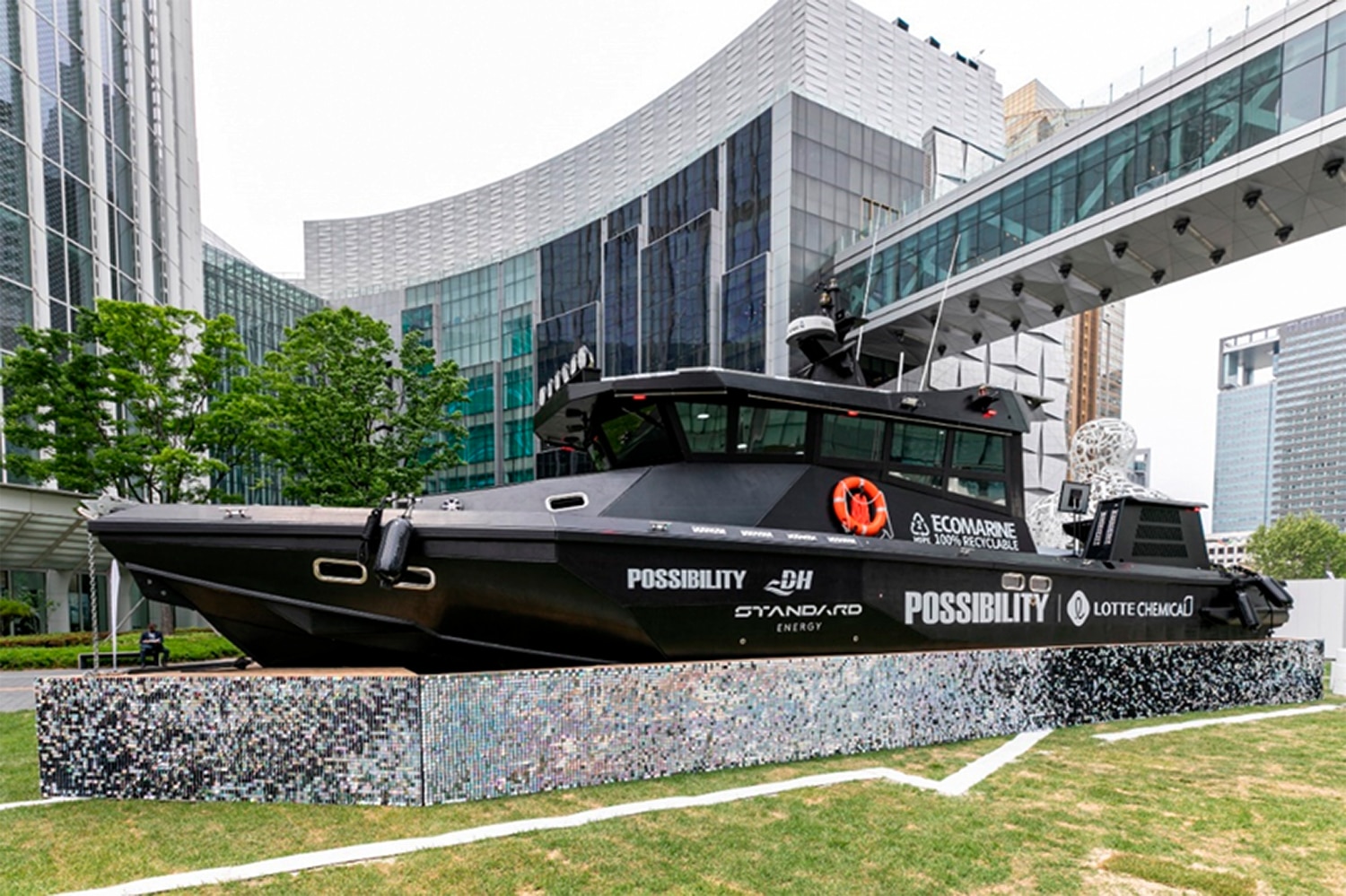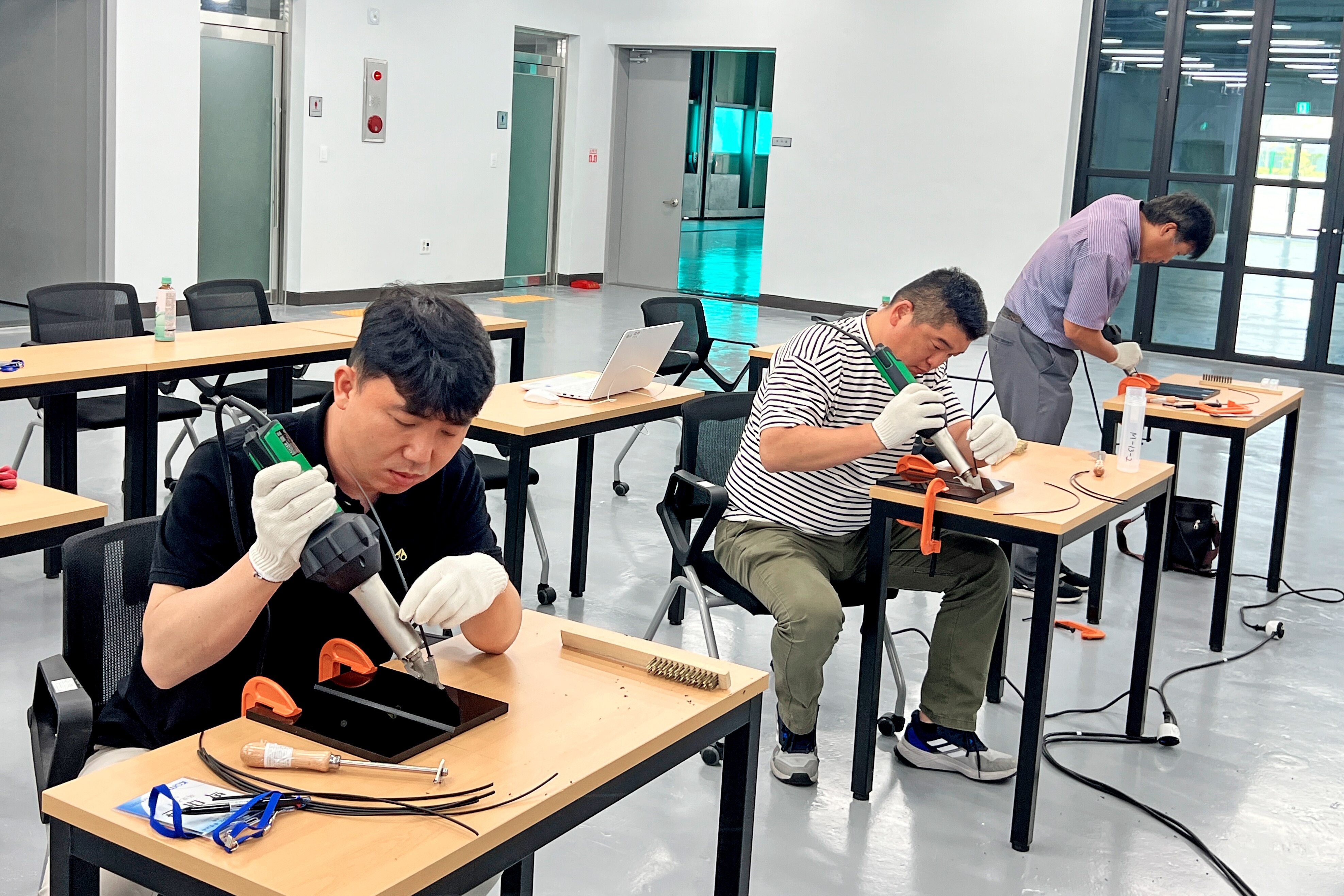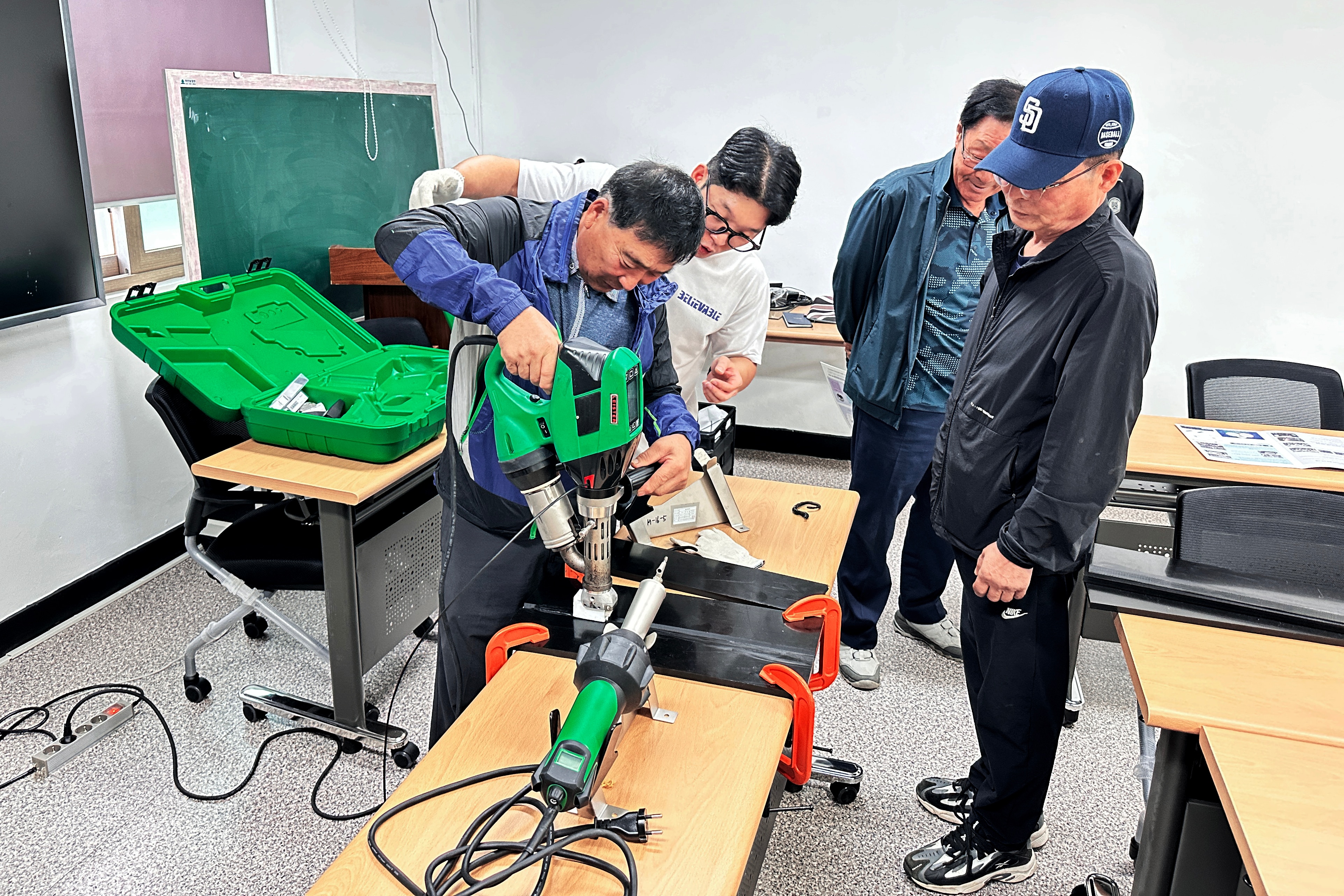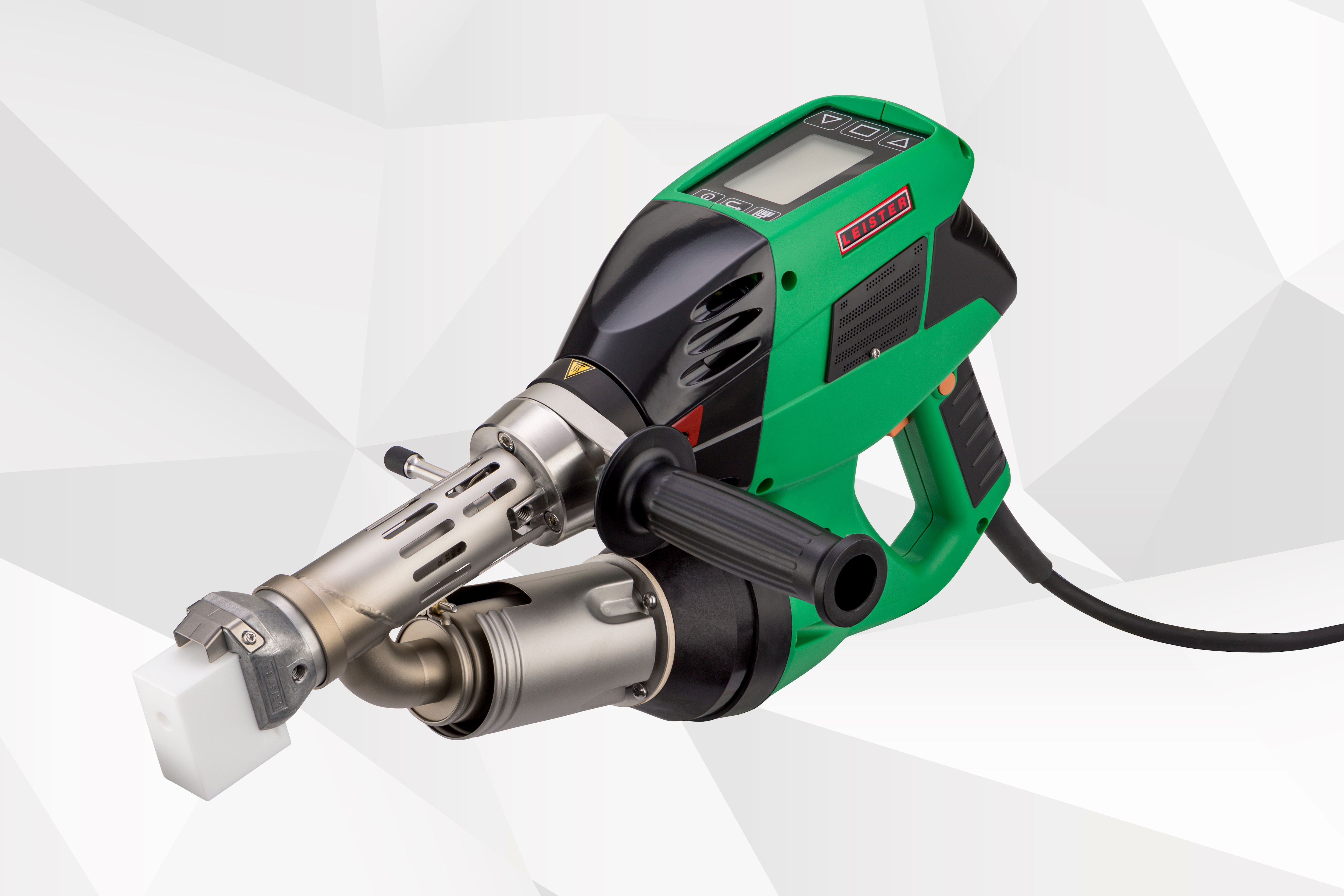Author: Myun-Sik Kim, Principal Business Development Manager, Leister International AG
GRP Boats: a Growing Problem for the Environment
South Korea is pursuing ambitious climate targets and focusing on innovative solutions to reduce carbon emissions in the shipping industry. A central problem is the non-biodegradable and difficult to recycle GRP (glass fiber reinforced plastic) boats. There are currently over 60,000 GRP fishing boats registered in Korea, many of which are due to be scrapped. They often end up in landfills or pollute coasts and oceans.
The Environmentally Friendly Alternative: HDPE Boats
To counteract this problem, the Korean Maritime Safety Authority (KOMSA) is promoting the switch to HDPE boats. This sustainable alternative is tougher, lighter and requires less maintenance – a decisive step towards environmentally friendly shipping. KOMSA is the South Korean maritime safety authority. It monitors ships, promotes safe maritime passenger transport, improves safety systems and participates in international initiatives such as the reduction of greenhouse gases. To implement this initiative, Eco Marine, a spin-off of the South Korean chemical company Lotte Chemical, has developed innovative HDPE materials specifically for boat manufacturing.
Benefits of HDPE boats: Sustainable solutions for the maritime industry
HDPE boats offer numerous advantages over FRP boats. They are fully recyclable, lighter and consume less energy. The corrosion and impact resistance of HDPE increases durability and cost efficiency as less maintenance is required and no antifouling coatings are needed. Most importantly, however, HDPE boats have a significantly lower carbon footprint compared to GRP and aluminum boats.
The introduction of HDPE boats is thus a crucial step towards achieving Korea’s carbon-neutral targets by 2050. By reducing reliance on GRP boats, the maritime industry can significantly reduce both waste and emissions. KOMSA’s efforts to promote HDPE technology and train technicians are paving the way for a greener future in Korean waters.



